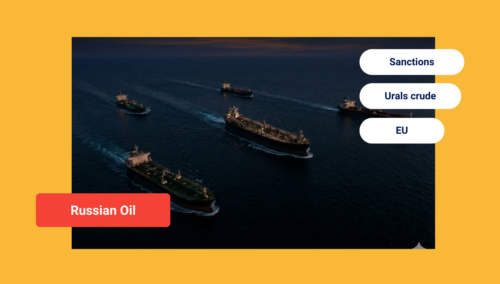
Shipping Contracts
What Are Shipping Contracts?
Shipping contracts are legal agreements between parties involved in the transportation of goods from one location to another. These contracts outline the terms, conditions, and responsibilities of each party to ensure the successful and secure delivery of goods. They are common in industries like manufacturing, retail, and e-commerce. They are vital for mitigating risks, ensuring accountability, and maintaining a clear understanding of responsibilities throughout the shipping process.
What Are the Functions of a Shipping Contract?
A shipping contract facilitates the smooth and secure transportation of goods.
- Defines responsibilities: clearly outlines the duties of the shipper, carrier, and receiver, ensuring accountability
- Establishes terms of service: specifies the agreed-upon shipping method, delivery timeframe, and service standards
- Protects against risks: allocates liability for loss, damage, or delays and often includes provisions for insurance
- Sets payment terms: details shipping costs, payment schedules, and any additional fees, such as customs or surcharges
- Ensures compliance: ensures adherence to local and international regulations governing the transportation of goods
- Clarifies dispute resolution: provides mechanisms for addressing and resolving conflicts that may arise during shipping
- Supports documentation: serves as a formal record of the agreement, aiding in legal and administrative processes
What Are Some Key Terms that Appear in Shipping Contracts?
- Shipper: the party responsible for sending the goods
- Consignee: the party receiving the shipment, typically the final destination of the goods. Payment terms may be prepaid or handled by a third party
- Accessorial: specific instructions for the carrier regarding shipment handling at the destination, such as unloading requirements or precise delivery locations
- Freight classification: a system for categorizing freight based on factors like weight, dimensions, density, value, and liability
- Freight broker: an intermediary that connects shippers, carriers, and consignees, facilitating communication and ensuring a smooth shipping process

What is an Expedited Shipping Contract?
An expedited shipping contract is a legal agreement designed for the accelerated transportation of goods, prioritizing faster delivery timelines. It ensures that the shipment receives priority handling throughout the process and clearly defines a shorter-than-standard delivery timeframe, often with a guaranteed arrival date.
This type of contract typically involves higher fees to reflect the priority service and may specify premium shipping methods, such as air freight or dedicated vehicles, to meet the expedited schedule. Additionally, the contract outlines liability for delays, including penalties or compensation if the agreed delivery timeline is not met. Special instructions for handling, loading, or unloading are also included to avoid potential delays.
Expedited shipping contracts are particularly valuable for industries requiring time-sensitive deliveries, such as perishable goods, urgent medical supplies, or high-priority retail items.
What Are Incoterms and What Role Do They Play in Shipping Contracts?
Incoterms (International Commercial Terms) are standardized trade terms established by the International Chamber of Commerce (ICC) to define the responsibilities of buyers and sellers in international trade. These terms clarify who is responsible for various aspects of shipping, such as transportation costs, insurance, customs clearance, and risk of loss or damage. By incorporating Incoterms into shipping contracts, parties reduce misunderstandings, ensure compliance with international regulations, and streamline global trade operations.
The following list contains all 11 incoterms and their definitions, as defined in Incoterms 2020.
- Ex works (EXW): the seller makes the goods available at their premises. The buyer is responsible for all transportation, insurance, and customs clearance.
- Free carrier (FCA): the seller delivers the goods to a carrier or another party nominated by the buyer at an agreed location. The buyer assumes all further costs and risks.
- Carriage paid to (CPT): the seller pays for the transportation of goods to a specified destination, but the buyer assumes risk once the goods are handed over to the carrier.
- Carriage and insurance paid to(CIP): similar to CPT, but the seller also provides insurance coverage up to the named destination.
- Delivered at place (DAP): the seller delivers the goods to the agreed destination, bearing all risks and costs until delivery. The buyer handles customs clearance and import duties.
- Delivered at place unloaded (DPU): the seller delivers the goods, unloaded, at the specified destination. The buyer is responsible for customs clearance and subsequent transportation.
- Delivered duty paid (DDP): the seller takes on all costs and risks, including customs duties, to deliver goods to the buyer’s location.
- Free alongside ship (FAS): the seller delivers the goods alongside the ship at the port of departure. The buyer assumes costs and risks from that point forward.
- Free on board (FOB): the seller is responsible for delivering goods onto the ship at the port of departure. The buyer takes over costs and risks once the goods are on board.
- Cost and freight (CFR): the seller covers the cost of transporting goods to the port of destination. However, the buyer assumes risk once the goods are loaded onto the ship.
- Cost, insurance, and freight (CIF): similar to CFR, but the seller also provides insurance for the goods during transport to the port of destination.
In shipping contracts, selecting the appropriate Incoterm ensures both parties clearly understand their obligations, minimizing disputes and facilitating smoother transactions.










